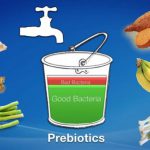Consuming low-fat and no-fat food has become the norm for many Kenyans today. Looking around, there is enough conscious behavior towards the amount of fat in the diet. But does it mean that all fat is bad fat? Do you still need fat in your diet? Fat is both good and bad and it does not mean that we should give up fat entirely. However, we need to know the types of fats that are there in our food choices and the ones we should partake in plenty while avoiding others.
Fat is a component of food that helps in absorption of other vitamins such as A, D, E and K. It adds flavor to food and gives that satisfying feeling when you eat food, providing you with energy necessary to boost your immunity. When we eat food and digest it, our bodies store fat in form of cholesterol. This cholesterol can either be good or bad. The good cholesterol is referred to as the high density lipoprotein while the bad cholesterol is referred to as the low density lipoprotein. The food we eat is responsible for balancing the ratio between the bad and good cholesterol in our bodies. Fats can be categorized into saturated fats, Trans-fats and unsaturated fats. While the saturated and Trans-fats are harmful to the body, the unsaturated fats are the best choices.
Saturated fats are derived from animal proteins for example, milk and eggs and meat. They can also be found in plants such as coconut and palm trees. These fats are normally solid at room temperature and increases the level of your low density lipoprotein (bad cholesterol) in your body. Trans-fats as well, are unsaturated fats that raise the level of bad cholesterol in the body while lowering the good cholesterol levels. These Trans-fats are used to improve the shelf life of foods like cakes, cookies, fries and other processed foods.
On the other hand, the unsaturated fats are divided into two. The polyunsaturated and the monounsaturated fats. The two forms are liquid at room temperature and can easily solidify at cold temperatures. The monounsaturated can be found from plant sources such as: peanuts, avocados, olive oils. When consumed, they reduce the amount of bad cholesterol in the body while maintaining your good cholesterol. The polyunsaturated fats can be derived from sunflower, soy beans and cotton seeds. They also have the same benefits like the monounsaturated fats.
The body also requires other fats known as essential fats that are not manufactured by the body but are required to boost immunity in the body. These essential fats are derived from fish such as omena, cod liver oil and soy.
It is therefore important to always choose the unsaturated fats, combining them with essential fats. The two help in reducing the risk of coronary heart diseases while the saturated and Trans- fats increase the risk of contracting lifestyle diseases. Do not just embark on a low fat diet, read those food labels carefully and choose your fats wisely. As a guiding rule, liquid fats are better for you than the solid fats.










When we consume excess calories, the body stores the energy as glycogen
or fat to use at a later time. Once the glycogen stores are full, the body
stores excess calories from carbohydrate, fats and protein intake as fat in the
body.
Cholesterol comes from two sources: your body and some foods. Your body,
and especially your liver, makes all the cholesterol you need and circulates it
through the blood. But cholesterol is also found in foods from animal sources. Your
liver produces more cholesterol when you eat a diet high in saturated and trans
fats. Cholesterol is found not only in your bloodstream, but also in every
cell in your body, where it helps to produce cell membranes, hormones, vitamin
D and bile acids that help you to digest fat. Fat and cholesterol are not
water soluble so they need to be carried around the body in something to
do their vital work. The carriers of such substances are called lipoproteins.
So LDL and HDL are not actually cholesterol, they are just carriers. We can
think of lipoproteins as tiny ‘taxi cabs’ travelling round the blood stream
acting as transporters.